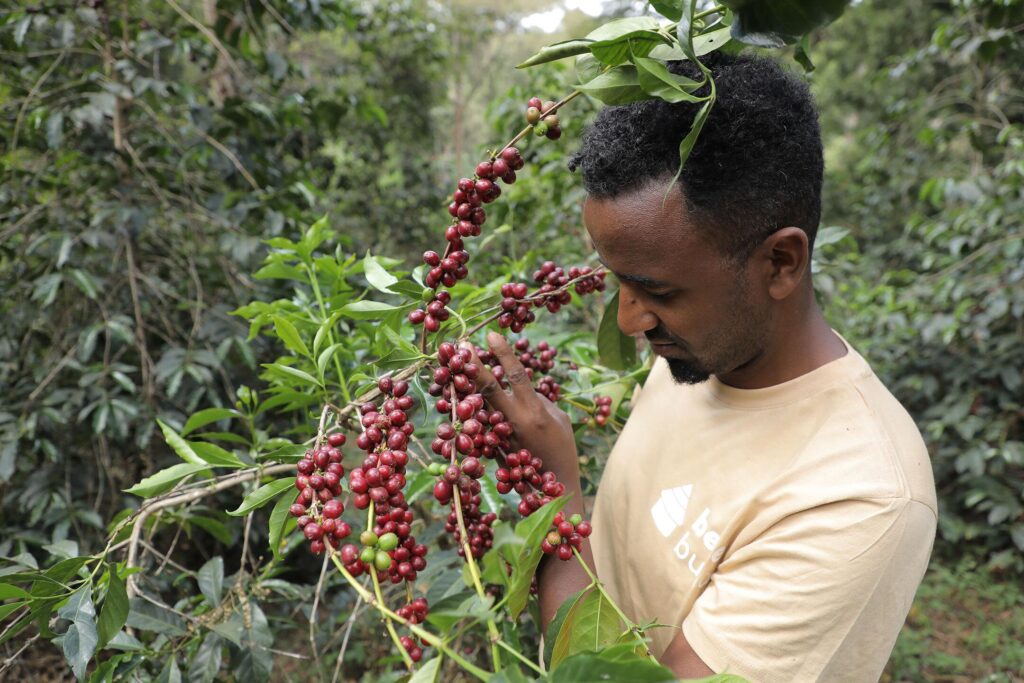Single farm, limited
lot VE-2416

Ashu
There’s a lot of information available on the web and on podcasts as well as by conversations with roasters and importers, other producers. In a short time we learned quite a lot about anaerobic fermentation, it was also at that time that we decided to take the risk.
We decided to call our anaerobic naturals Ashu, which is a nickname Dawit’s grandparents gave him from birth that means ‘great satisfaction’. Dawit’s overcome a lot of challenges in life and really exemplifies the Bette Buna ethos of ‘anything is possible’ these anaerobics really are a result of that approach, and the great satisfaction that comes from it.
This lot sold out!
Lot details
Farm: Bette Buna Megadu
Varietal: 74112, 74110 & Enat Buna Megadu
Altitude: 1900-2200 masl
Harvest: Late November – December ’23
Processing: Natural Anaerobic 96hrs
Traceability
GPS: 5.687563, 38.821360
Farmers: Dawit & Hester Syoum
Farm team: Dawit Syoum, Hester Syoum, Demelash Hailu, ato Sentayehu, ato Saffay, gash Duba, Kemer Saffai, Abiti, [add list ’23 team]
Processing masters: Dawit Syoum & ato Sentayehu
Farm Megadu
The farm is a big beautiful forest, and within its 220 hectares sits our plot, which is around a quarter of the total farmland owned by the three Abbaa Gadaa. As with our Taferi Kela farm our work in this region started as a small pilot. We took a small plot to see how well the collaboration would work.
We needed to know the project would be a win-win for us, the Abbaa Gadaa and the communities that they represent. We always try to build incrementally so that we have an opportunity to find any potential problems before investing too heavily or taking too much risk. Thankfully this collaboration has been a huge success, massively exceeding our expectations both in terms of coffee quality and impact. Read more..


Guji is well known for producing exceptional coffees, in particular natural process ones. We’ve learned a lot from the farmers we work with there about good farm management, cultivation and generally the health of farms there from soil to plant is really really good. We’ve had the opportunity to add value there by teaching people other processing techniques. We have a mill there and we process lots from our plot but also the surrounding plots, many as naturals but also washed and some experimental processes such as anaerobic / anoxic. This is a big example of that win-win relationship we aspire to as we are learning and improving our coffee growing and processing in a way that is collaborative and beneficial not only for us but for the wider coffee growing community. More about our approach..


